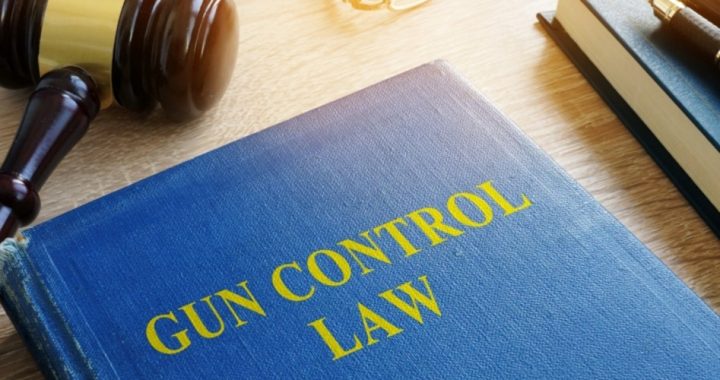
Podcast: Play in new window | Download ()
Subscribe: Android | RSS | More
Following the Democrat Party’s takeover of both houses in Virginia last November, the party gained control of both the Legislature and the Governor’s Mansion for the first time in a generation. Gun owners awakened, saw what was coming, and pressured nearly all of the state’s counties and many of its cities to pass “Second Amendment sanctuary” resolutions. These were passed to protest the coming abrogation of their rights by politicians in Richmond, the state’s capitol.
When speaking about a bill that would make it a felony for a gun owner to “recklessly leave a loaded, unsecured firearm” in a way that endangers a minor, Virginia Governor Ralph Northam’s spokeswoman Alena Yarmosky said, “This bill will keep children safe from loaded, unsecured firearms.” She added that the bill “is something that everyone … should support.”
But what if everyone doesn’t support the bill, or any of the new gun-control legislation? Will those Second Amendment sanctuary resolutions keep Governor Northam from enforcing them anyway?
When he was asked, Northam said the new gun-control measures will be enforced, and any law-enforcement officer, including county sheriffs, who doesn’t enforce them will face “consequences”:
If we have constitutional laws on the books and law enforcement officers are not enforcing those laws on the books, then there are going to be consequences.
But I’ll cross that bridge if and when we get to it.
That moment is getting closer every day. Richard Schragger, a professor at the University of Virginia’s School of Law, says those Second Amendment resolutions are just “a political statement” without teeth, that they are “mostly expressive and symbolic” declarations. He added that “In Virginia, state law supersedes local law. Citizens and local officials have to comply with state law even if a county declares itself to be a Second Amendment sanctuary.”
But some sheriffs don’t see if that way. Instead, they take the position that they are accountable only to those citizens who elected them. As Philip Van Cleave, president of the Virginia Citizens Defense League (VCDL), noted, “If a county passes a resolution, the sheriff is a constitutional officer. No one [but the citizens who elected him] tells him what to do.”
For Nelson County Sheriff David Hill, the U.S. Constitution overrides Richmond’s attempted infringements:
As a constitutional officer — as sheriff — I’m here to protect the rights of citizens against things like unlawful search and seizure. State and federal agencies don’t come in unless we ask them to.
As far as sanctuaries: the individual has the right to bear arms. As long as they have proper credentials, then that’s fine. Our office isn’t going to knock on doors and we aren’t going to allow people to come in and round up firearms and what have you. If [the individual is] mentally competent and not a felon, there shouldn’t be a problem.
As long as the Constitution reads the way I read it, we’re going to be okay.
What if Northam decides to press the matter — “cross that bridge” — and send in state law-enforcement officers? Said Hill: “Coming in and taking all firearms? That’s not going to happen.”
Hill has the support of Appomattox Commonwealth’s Attorney Leslie Fleet, who, according to his official biography, “is responsible directly to the citizens of the County of Appomattox”:
The U.S. Constitution is the supreme law of the land and as such, I will not enforce any state or local statute that violates the federal or state constitutions….
If I believe a law infringes on a 2A right … that law will not be enforced in Appomattox County….
While the resolutions passed in Appomattox and other localities have no legal “teeth” and therefore do not supplant state or federal law, they do voice the majority opinion of their respective localities and it is up to each elected official how they will proceed.
As stated earlier, the Appomattox County Commonwealth’s Attorney’s Office interprets gun control laws as unconstitutional and therefore unenforceable.
If Governor Northam decides to “cross that bridge,” this is what awaits him on the other side.
Image: designer491 via iStock / Getty Images Plus
An Ivy League graduate and former investment advisor, Bob is a regular contributor to The New American, writing primarily on economics and politics. He can be reached at [email protected].
Related articles:
Thousands of Gun Rights Activists Turn Up at Virginia Capitol



